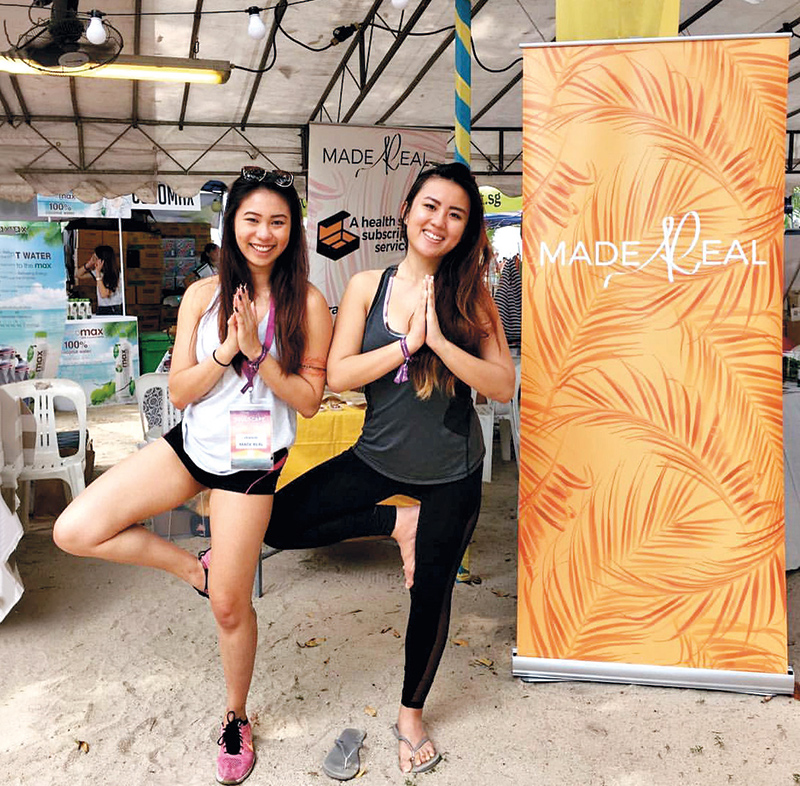Confessions of a Healthy-Eating Crusader
Having triumphed over adversity and turned the lessons learned into a business model, Ms Roslyn Teng (Yale-NUS ’19) is certainly not nuts — she just wants to sell you some.
WHO IS SHE?
Ms Roslayn Teng, 23, co-founder of Made Real, a subscription service that sells boxes of healthy snacks. When you subscribe, you choose the kind of snacks you want and you get a box delivered to you either weekly, fortnightly or monthly. The snacks include nuts, dried fruits, seeds and even chips made from vegetables like carrot, radish, sweet potato and taro.
Born of Passion
We were thick-skinned though. Because of that we could push through — even if we had 99 ‘nos’ and one ‘yes’, we would persist.
Ms Teng, the chief marketing officer, and her friend Ms Robin Lim, who is the company’s chief executive, did not set up the company to become rich. Made Real came out of a campaign by the two co-founders to raise awareness about eating disorders and the need for balanced diets back when they were 19. “We wanted to do something impactful with our time before uni started,” says Ms Teng. According to her, their campaign impacted thousands of people but the pair soon realised they needed a viable business model in order to make a sustained difference.
Close to The Bone
The pair had very personal reasons for wanting to make an impact as both had struggled with eating disorders when they were younger: As a teenager, Ms Teng had both anorexia and bulimia while Ms Lim engaged in extreme dieting. “It was a painful period both psychologically and physically,” says Ms Teng. She overcame her issues with support from friends and family and by rewiring how she approached food. Living with bulimia and anorexia, then recovering from it left a deep mark on her. “Without that experience, there would be no Made Real,” she says. She is now a big believer in healthy eating and has been a vegetarian for over five years.
Going Local
Besides offering healthy snacks, the company works with independent local producers, thus trying to extend the ‘good karma’ in the production process as well. Ms Teng says her philosophy is about “maximising societal and personal benefit and minimising societal and personal cost. We’re in the business of doing good, by promoting balanced lifestyles (no extreme diets, or unrealistic body ideals) and physical and mental health.”
 Ms Teng, with Made Real co-founder Ms Lim at the Soulscape SG event in 2016.
Ms Teng, with Made Real co-founder Ms Lim at the Soulscape SG event in 2016.
The Model
Today, the company focuses on B-to-B e-commerce, though they still take orders from individuals via the website. They have kitchen partners who do the food preparation, while the packaging is done in-house. A third party handles the distribution. This is a far cry from the company’s early days when the two young women even did their own deliveries.
“We started off at 19 without any work or business experience — but we were bold.” There were numerous challenges, from finding suppliers to pitching to customers to try their products. “We were thick-skinned though. Because of that we could push through — even if we had 99 ‘nos’ and one ‘yes’, we would persist.”
Double Lives
What made things doubly hard for the duo was that they had to juggle with getting Made Real off the ground with going to school: Ms Teng was studying at Yale-NUS College while Ms Lim was at Singapore Management University. Ms Teng, who majored in psychology and economics, says it was incredibly hard balancing both school and startup. “I had days where I’d wake up, and the first thing I would do was open my laptop, reply mails and take calls, then attend classes non-stop, after which I’d pass out at night, laptop still in hand.”
She had chosen Yale-NUS because she wanted to get a degree while running Made Real at the same time. Her original plan had been to do an degree in the UK but when the company started picking up steam, she decided that staying in Singapore would make more sense. “It was a question of evaluating the personal growth I could get from traditional education versus embarking on a start-up university that literally had no graduates. The answer was obvious. “I also wanted international experience, beyond the bubble of the local schooling system.”
Text by Jimmy Yap. Main Photo by Ealbert Ho